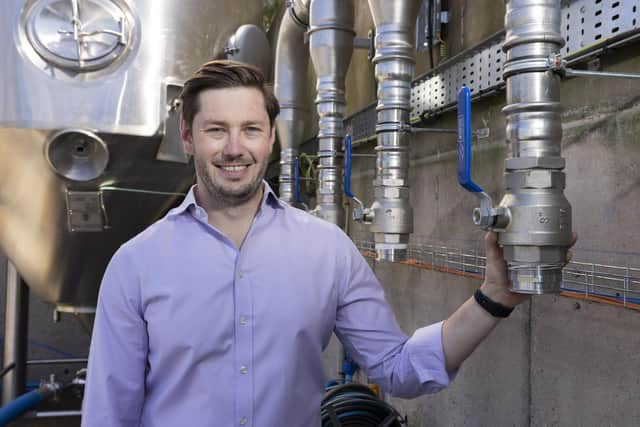Sustainable Scotland: Funding boost for Scottish biotech firm turning whisky waste into sustainable omega-3 oil
Omega-3 fats are beneficial for human health, and eating them can help to prevent heart attacks and strokes.
Currently much of the supply is produced by extracting the oil from wild-caught fish.
Advertisement
Hide AdAdvertisement
Hide AdEdinburgh-based MiAlgae, set up in 2016, has created a solution to producing a sustainable source using low-value byproducts from the food and drink industry as a feedstock to grow microalgae that is rich in the important fats.
The products can be used for human and animal consumption, reducing pressure on fragile fish stocks across the globe.
Now the company is plunging forward after receiving £900,000 of investment from Conduit Impact Fund, £350,000 from SIS Ventures and more than £1 million from previous supporters Equity Gap, Old College Capital and Scottish Enterprise.
The cash builds on £850,000 of grants recently secured from Zero Waste Scotland and Scottish Enterprise and will help MiAlgae realise its growth plans, including completion of a commercial demonstrator facility near Stirling.


Initially the company is focused on the pet food sector, but aims to expand into aquaculture – fish feed is the biggest market for fish oil produced globally – in the near future.
Plans are also in place to commercialise other high-value compounds and pigments through expansion of the platform.
The investment will also help grow the team at MiAlgae and increase its expertise, with 10 new posts set to be created.
Managing director Douglas Martin said: “It’s incredibly exciting to know that our investors see value in the biotechnology platform we’ve developed to tackle the production of omega-3 oils in a commercially viable way.
Advertisement
Hide AdAdvertisement
Hide Ad“Our process is championing the circular economy and the investment we have secured will be transformational in helping MiAlgae scale quickly, both locally and abroad.
“Our commercial demonstrator plant, due to be completed early in 2023, will help us improve food security globally, while our research department continues to drive the development of exciting, commercially viable biotech innovations.”
MiAlgae’s circular economy approach “solves key pain points” in supply and demand, according to Hadley Diest, investment manager at the Conduit Impact Fund, “to both dispose of Scotch byproducts sustainably and increase the supply of sustainably sourced, price-competitive, omega-3 into the broader market”.
She said: “Douglas and his team have worked tirelessly to bring this vision to life and the Conduit Impact Fund is proud to help support MiAlgae in their next stage of commercial growth.”
Rob Halliday, senior investment manager at SIS Ventures, added: “We believe in MiAlgae’s mission to become a world leader in biotechnology for good, and by improving food security and reducing the impact of humanity on the planet through sustainable omega-3 production MiAlgae will deliver important societal and environmental impact.”
Comments
Want to join the conversation? Please or to comment on this article.
